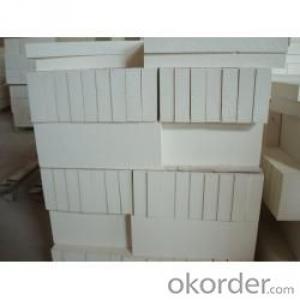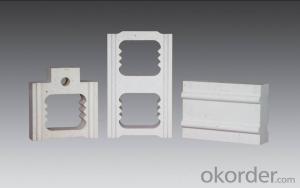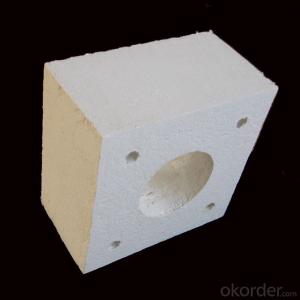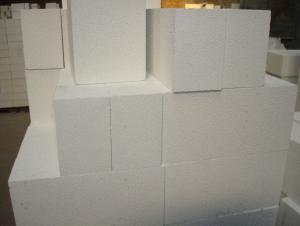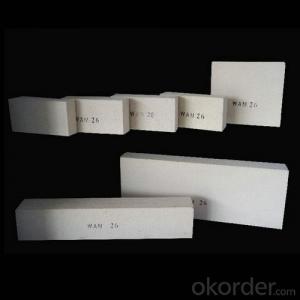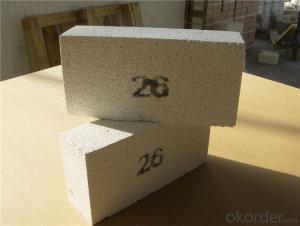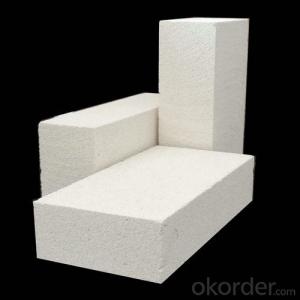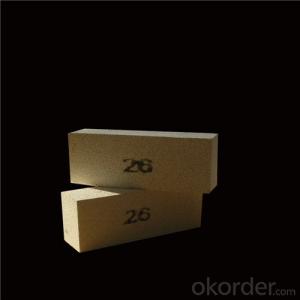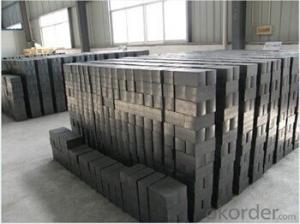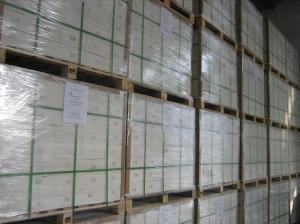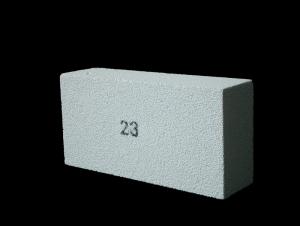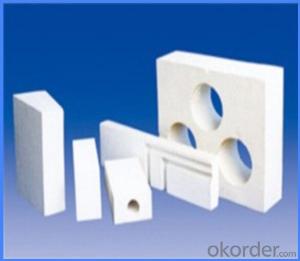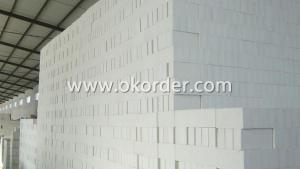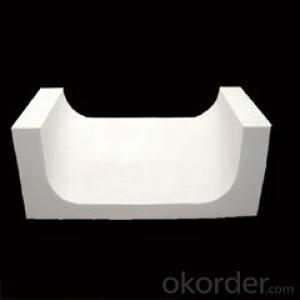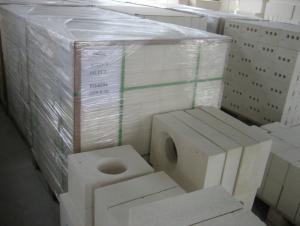Thermal Insulating Fired Brick with High Quality Light Weight
- Loading Port:
- China main port
- Payment Terms:
- TT or LC
- Min Order Qty:
- 3 m.t.
- Supply Capability:
- 10000 m.t./month
OKorder Service Pledge
OKorder Financial Service
You Might Also Like
Thermal Insulation Fire Clay Brick
CNBM conforms strictly to the requirements of ISO 9000 quality control system during the production. MSDS is also available if you want. The thermal insulation fire clay brick meet with the requirements of ASTM & JIS standards. So please stay cool with our quality.
Application
Insulating Fire Brick are used for the lining of converter, alternating current arc furnace, direct Current arc furnace and the ladle slag line, etc.
Company Advantage
(1)Long Insulating Fire Brick manufacture history: 25 years manufacturer
(2)Advanced equipment
(3)Diversification of production standards: ISO ANSI FEPA JIS ASTM
(4)Flexible payment: T/T L/C D/P D/A
(5)Professional marketing team and after-sale service
(6)Free sample
Insulating Fire Brick main feature:
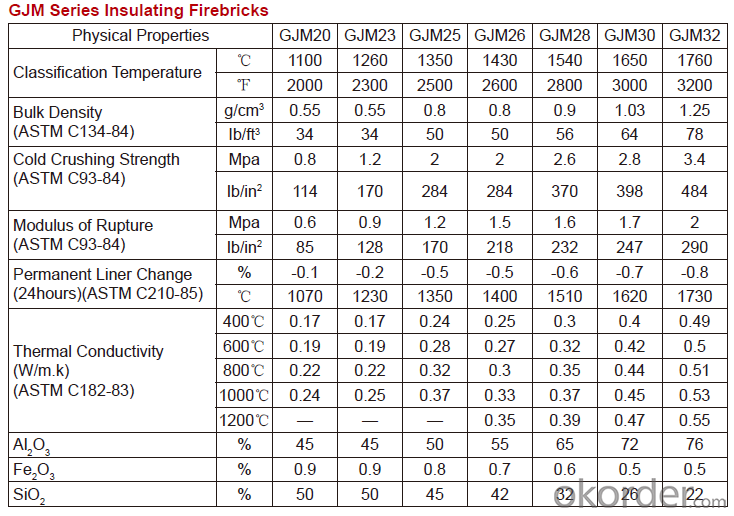
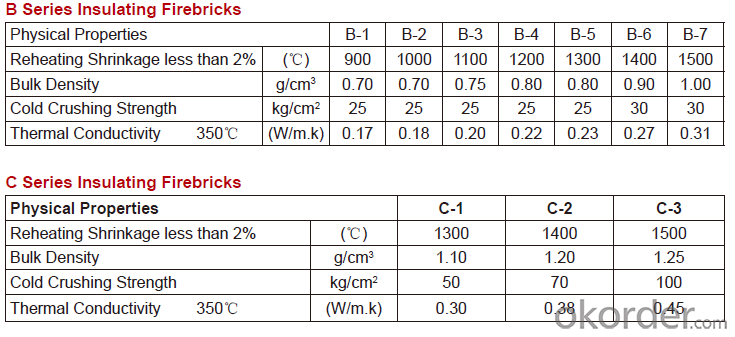
Equipment
1 unit of Ceramic Abrasive (SG Abrasive) pilot production line
2 units of Compact grain Abrasive pilot production lines
1 unit of high-end coated abrasives (abrasive cloth) production line
2 units of Boron Carbide production lines
3 large flexible crushing and sieving lines for grit production lines
2 units of 2000KVA furnaces for Boron Carbide fusion
6 units of 5000KVA-10000KVA dumping type electric arc furnaces for Brown Fused Alumina fusion
FAQs
Q1 What’s the transport method?
A1 FCL delivery goods with wooden pallet or wooden case by sea; If LCL delivery, must with wooden case; Sometimes need open top, flat rack or bulk cargo.
Q2 What’s the required payment term?
A2 Generally 30% TT as the prepayment, 70% TT before delivery. If need, 100% Irrevocable Letter of Credit or negotiation.
Q3 Which country are our products exported to?
A3 Apart from entire Chinese market, the US, Russia, Japan, Korea, Australia and some Southeast Asian Nations.
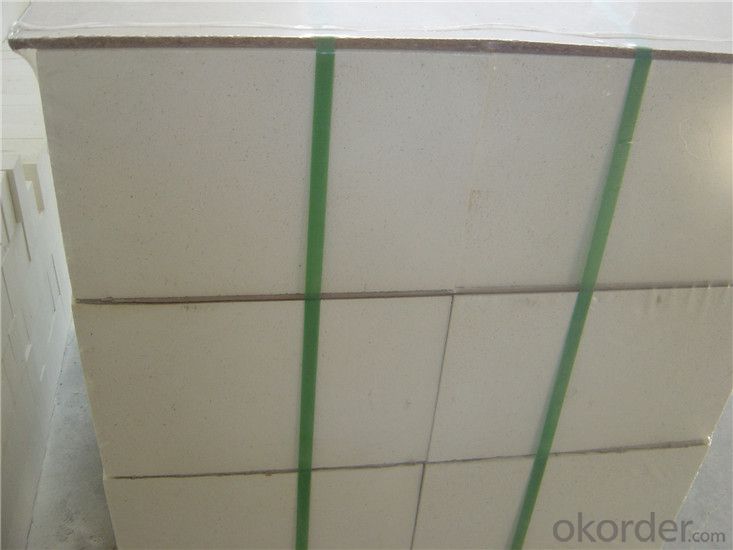
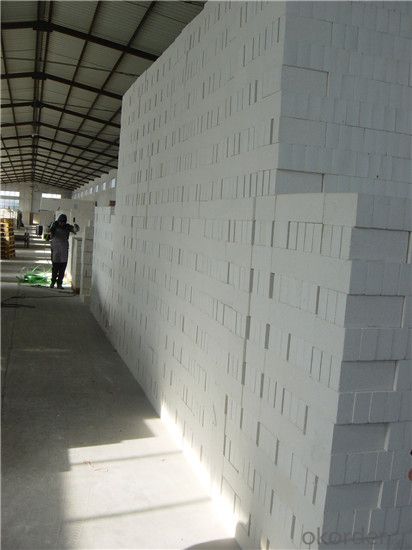
- Q:Are insulating fire bricks suitable for use in oil refineries?
- Insulating fire bricks do not typically suffice in oil refineries due to their inability to withstand the corrosive and abrasive nature of oil and its byproducts, despite being designed for high temperatures. Oil refineries involve a complex process of refining crude oil into various petroleum products, which often exposes materials to harsh chemicals and high temperatures. Instead, refractory bricks or castables specifically tailored to endure the corrosive and abrasive conditions present in the refining process are commonly employed. These refractory materials possess chemical resistance, high strength, thermal shock resistance, and the ability to withstand the extreme temperatures encountered during refining. Moreover, oil refineries necessitate materials that offer excellent insulation properties while also being durable and resistant to thermal stress. While insulating fire bricks possess good insulation properties, they may not possess the necessary durability and resistance to thermal stress demanded in the demanding environment of an oil refinery. Hence, it is advisable to utilize refractory bricks or castables that are designed specifically for oil refineries. These materials can provide the requisite resistance against chemicals, high temperatures, and thermal stress, ensuring the refinery operates safely and efficiently.
- Q:Is the quality of brick made of small-sized self insulation block equipment the same as that of large block brick equipment?
- In fact, brick and tile production is only a different production, the quality of brick produced is the same, from the silver horse experience
- Q:Can insulating fire bricks be used in residential applications?
- Yes, insulating fire bricks can be used in residential applications. They are commonly used in residential fireplaces, wood-burning stoves, and pizza ovens to provide insulation and increase energy efficiency. Their high heat resistance and insulating properties make them suitable for these applications.
- Q:Can insulating fire bricks be used in the construction of smelting ovens?
- Yes, insulating fire bricks can be used in the construction of smelting ovens. They have excellent thermal insulation properties, high temperature resistance, and can withstand the intense heat generated during the smelting process. This makes them an ideal choice for lining the walls and floors of smelting ovens to maintain high temperatures and minimize heat loss.
- Q:Are insulating fire bricks resistant to fire damage?
- Yes, insulating fire bricks are specifically designed to be resistant to fire damage. They are made from special refractory materials that can withstand extremely high temperatures without deforming or losing their insulating properties. Insulating fire bricks have a high melting point and low thermal conductivity, which allows them to effectively insulate against heat transfer and protect against fire damage. They are commonly used in applications where high temperatures and fire exposure are expected, such as in furnaces, kilns, fireplaces, and industrial processes. Overall, insulating fire bricks are reliable and durable materials that provide excellent protection against fire damage.
- Q:Can insulating fire bricks be used for insulation in flues?
- Insulating fire bricks are created with the specific purpose of being used in high-temperature settings, such as furnaces, kilns, and various industrial environments. Their main function is to effectively insulate heat and prevent heat loss. However, it is important to note that they are not suitable for use in flues. Flues are exposed to extreme temperatures, corrosive gases, and the possibility of accumulation of soot and creosote. The conditions in flues are not compatible with insulating fire bricks, as they are not designed to withstand such harsh elements. Consequently, when exposed to the acidic and corrosive gases generated by combustion, these bricks may deteriorate or develop cracks over time. To ensure proper insulation in flues, it is advisable to opt for materials that are specifically manufactured for this purpose, such as refractory cement or ceramic fiber insulation. These materials are better equipped to withstand the challenging conditions encountered in flues and are more capable of providing effective insulation while maintaining the safety and durability of the flue system.
- Q:How do insulating fire bricks prevent heat transfer?
- Insulating fire bricks prevent heat transfer by their unique composition and structure. They are made of lightweight refractory materials that have low thermal conductivity. This means that they are poor conductors of heat, which helps to minimize the transfer of heat from one side of the brick to the other. Additionally, the bricks are designed with small air pockets or voids, which further reduces heat conduction by trapping air and preventing its movement. The combination of low thermal conductivity and trapped air pockets effectively hinders the transfer of heat, making insulating fire bricks an excellent choice for applications where heat insulation is required.
- Q:Can insulating fire bricks be used for insulation in chemical reactors?
- Yes, insulating fire bricks can be used for insulation in chemical reactors. Insulating fire bricks are made from lightweight materials such as vermiculite or perlite, which have excellent thermal insulation properties. These bricks are designed to withstand high temperatures and can provide insulation in a variety of applications, including chemical reactors. Chemical reactors often operate at elevated temperatures, and maintaining a stable temperature is crucial for efficient and safe operation. By using insulating fire bricks as insulation in chemical reactors, heat loss can be minimized, leading to better energy efficiency and cost savings. Additionally, insulating fire bricks can help to reduce the temperature gradient within the reactor, ensuring uniform heat distribution and enhancing the overall performance of the reactor. Furthermore, insulating fire bricks are resistant to chemical attack and can withstand the corrosive effects of various chemicals used in chemical reactions. This makes them suitable for use in chemical reactors where exposure to corrosive substances is common. In summary, insulating fire bricks are an excellent choice for insulation in chemical reactors. They provide superior thermal insulation, can withstand high temperatures, and are resistant to chemical attack. Using insulating fire bricks in chemical reactors can contribute to improved energy efficiency, temperature stability, and overall performance of the reactor.
- Q:Can insulating fire bricks reduce heating or cooling costs?
- Insulating fire bricks possess the ability to decrease heating or cooling expenses. These bricks are specially designed to exhibit a high level of thermal insulation, meaning they possess low thermal conductivity and can effectively hinder the transfer of heat between a building's interior and exterior. In the construction of fireplaces, ovens, or kilns, the utilization of insulating fire bricks aids in retaining heat within these structures. This enables them to achieve and maintain higher temperatures while consuming less energy. Consequently, this leads to substantial savings on heating costs, as the desired temperature can be achieved with reduced energy usage. Similarly, when employed in the construction of walls, insulating fire bricks serve to minimize heat transfer between a building's inside and outside. This results in decreased heating or cooling requirements, as the insulation helps to maintain a consistent indoor temperature. Subsequently, less energy is needed to heat or cool the building, resulting in lower energy bills and reduced overall heating or cooling expenses. It should be noted that the effectiveness of insulating fire bricks in reducing heating or cooling costs can vary based on factors such as overall building insulation, structure size and design, and climate conditions. Nevertheless, in general, the utilization of insulating fire bricks can contribute to energy efficiency and cost savings in heating or cooling systems.
- Q:Do insulating fire bricks require any curing or drying time?
- No, insulating fire bricks do not require any curing or drying time. These bricks are manufactured using high-temperature processes, which results in a product that is already fully cured and dried. This means that they can be used immediately after installation without the need for additional curing or drying time.
1. Manufacturer Overview |
|
|---|---|
| Location | |
| Year Established | |
| Annual Output Value | |
| Main Markets | |
| Company Certifications | |
2. Manufacturer Certificates |
|
|---|---|
| a) Certification Name | |
| Range | |
| Reference | |
| Validity Period | |
3. Manufacturer Capability |
|
|---|---|
| a)Trade Capacity | |
| Nearest Port | |
| Export Percentage | |
| No.of Employees in Trade Department | |
| Language Spoken: | |
| b)Factory Information | |
| Factory Size: | |
| No. of Production Lines | |
| Contract Manufacturing | |
| Product Price Range | |
Send your message to us
Thermal Insulating Fired Brick with High Quality Light Weight
- Loading Port:
- China main port
- Payment Terms:
- TT or LC
- Min Order Qty:
- 3 m.t.
- Supply Capability:
- 10000 m.t./month
OKorder Service Pledge
OKorder Financial Service
Similar products
New products
Hot products
Hot Searches
Related keywords
